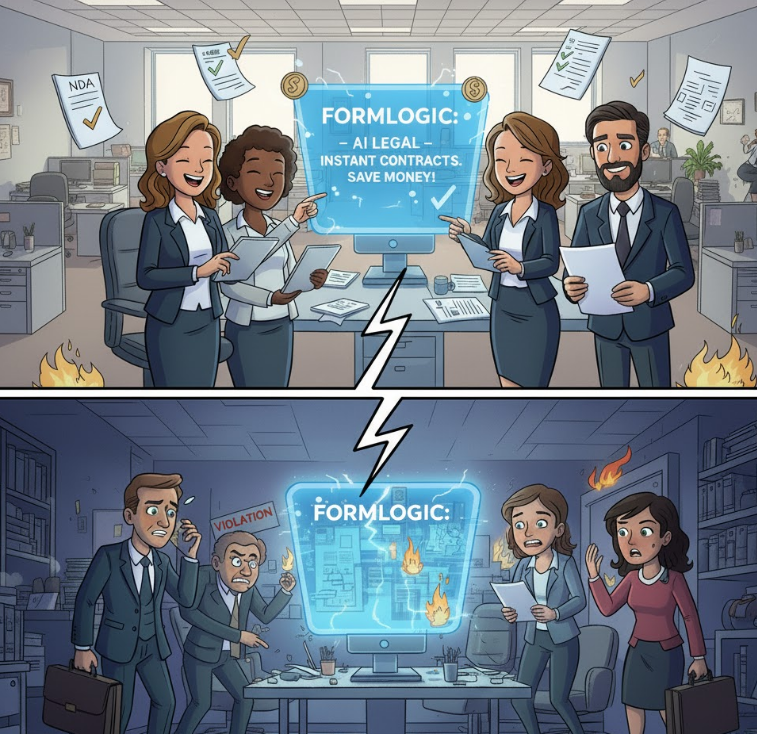AI Legal Document Generator Pulled After User Complaints Reveal Risk of Invalid Clauses
The Challenge
In 2025, FormLogic, an emerging legal technology startup, launched an AI-powered platform designed to help small businesses generate legal documents quickly and cost effectively. The product, described as a smart assistant for drafting contracts, was marketed as a way to reduce dependency on legal professionals for routine agreements. Excitement grew rapidly as users signed up to streamline tasks like partnership agreements, non-disclosure forms, and investor documents.
However, within a few weeks of the platform’s launch, reports of inaccurate and potentially misleading clauses began to emerge. Users shared examples of agreements that included unrealistic termination terms, non-enforceable liability waivers, and outdated jurisdiction references. In one troubling case, a startup submitted an investor agreement containing a clause that violated Canadian securities regulations, triggering concern from legal counsel and investors.
FormLogic’s AI model had been trained on a mix of anonymized documents and publicly sourced contracts, but had not undergone thorough legal review. The team lacked jurisdiction-specific training data and had no legal advisory board in place to provide oversight. As criticism mounted, legal professionals accused the company of practicing law without a license and endangering clients by presenting generated content as legally sound.
The issue escalated when journalists published side-by-side comparisons of flawed AI templates against real legal forms, sparking a broader debate on the limits of automation in law. The company faced reputational damage, regulatory review, and a significant drop in user engagement.
Our Solution
We were engaged by FormLogic’s board to perform an independent risk assessment and guide a complete reset of the platform’s legal and ethical posture. Our first recommendation was to suspend the AI tool immediately and notify all active users about the potential for flawed output. A public statement was released acknowledging the issue and committing to reform.
We led an internal audit of the AI model’s training data and removed any improperly sourced materials. A legal oversight board was established to review and approve future content. We also rewrote product disclaimers, making it clear that the system was intended as a support tool rather than a legal substitute. New workflows were developed to ensure that all critical outputs required human approval before delivery.
The Value
By acting quickly and transparently, FormLogic avoided lawsuits and regulatory sanctions. Many users appreciated the honesty of the disclosure and agreed to participate in beta testing for the revised version. The company retained the majority of its user base and shifted public perception from recklessness to responsibility.
In the long term, this incident positioned FormLogic as a thought leader in responsible AI use within the legal sector. What began as a flawed product launch became a catalyst for cultural change, driving home the message that innovation must be grounded in accountability.
Implementation Roadmap
- Suspend public access to unverified AI legal tools
- Notify users of potential inaccuracies in generated content
- Form a legal oversight board for product review
- Revise marketing language and add usage disclaimers
- Introduce human-in-the-loop validation for critical outputs


